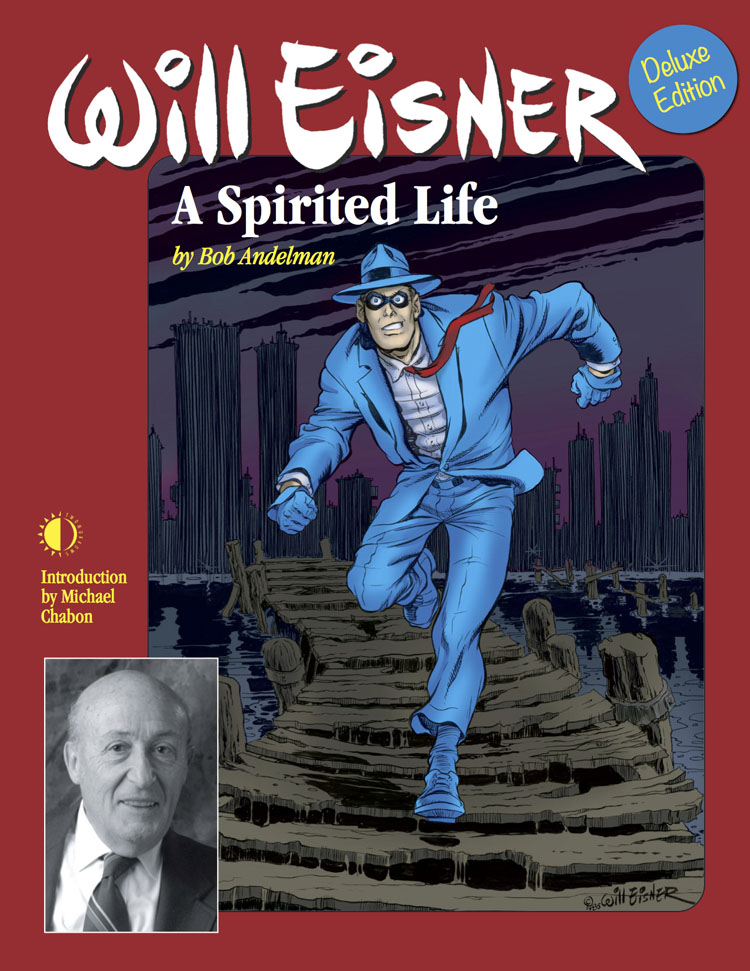
Cerebus, character created and published by Dave Sim
Dave Sim doesn’t use email.
So when I received his comments (below) a few months ago about my interview with Howard Chaykin via his friend and snail-mail correspondent Mike Fullerton, I wasn’t very swift at retyping his letter into this blog. Sorry, Dave!
If you find the following of interest, there are a couple of Sim-related anecdotes in my biography, Will Eisner: A Spirited Life that you might enjoy as well.
And now, without further adieu, Dave Sim on Howard Chaykin:

Dave Sim, photographed by Dave Fisher
“It seems like another example of the Jewish internecine warfare that is rife in the comic-book field (and for all I know other fields, as well). It’s no small thing to be the Comic Book Super Jew and if you had to decide who was it at any given point you have a lot of contenders with different claims to the title.
“I was certainly aware at all times talking to Eisner that he had decided some time ago that he was the top of the heap overall and was largely disinterested in my work except in a very cosmetic way. It wasn’t until I read the dialogue with Frank Miller that I realized that it wasn’t just me. He really wasn’t interested in what other people were up to.
“The situation with Chaykin is a little different because it comes down to whether or not fascism extends to the fascist aesthetic and that’s a very Jewish discussion. Wasn’t it just last year that Wagner was played for the first time in Jerusalem since the war? The point Eisner was trying to make, I think (and badly) was that when he invented Blackhawk, he took the uniforms from the SS uniforms because aesthetically they were more dynamic than anything the Allies had to offer. It’s not readily apparent that he did so, but I think it is something that he thought was a natural choice to make in his twenties that he came to regret over the years. His verboten Nazi associations extended more widely than did Chaykin’s and when Will looked at Reuben Flagg’s uniform he saw the same aesthetic being applied — particularly the leather jacket, the Hitler haircut, the jodhpurs and the jackboots and he wanted to draw a sharp distinction that he had regretted his own flirtation with that sensibility as making use of a harmless visual effect. Unfortunately, in drawing that distinction he offended against Chaykin’s own aesthetic which says that you can make use of the visual shorthand devices used by German designers and illustrators c. 1930-1945 and still be a 100% squeaky clean Fellow Traveler.

Howard Chaykin’s character, Reuben Flagg,
featured in his comic book, American Flagg
“Chaykin’s response is to indict Will for what Chaykin sees as far more grievous offences — like jumping back and forth between businessman and artist depending on which row Will was hoeing at the time. I’m a conservative so that just looks to me like Marxist posturing on Chaykin’s part, but I certainly understand the compulsion to try to keep your own track record 100% clean in your own frames of reference if, as Chaykin has, you’ve made certain sacrifices to maintain your own integrity in your own eyes. There was no way they would ever reach an accommodation. Will would’ve just seen himself as having struck a raw nerve in the Socialist Jew who was using Nazi visuals to sell his comic books and Chaykin would be unshakeable in his view that aesthetics and politics are two different categories.
“The side discussion with Kubert was interesting, offering him ten dollars to kick Eisner’s ass is a way of asking Kubert whose side he was on and I suspect Kubert saying that for 20 they’ll talk was taken by Chaykin to be a signal that he agreed with Chaykin — just not to the same degree — but couldn’t say it in so many words out of loyalty to Will. Which could well be true. Or it’s more likely that Kubert just thought that making a joke out of it was a good way to lower Chaykin’s temperature (which could also be true — it might even have worked to a degree because of Chaykin’s respect for Kubert). On the other hand, Kubert drew Enemy Ace which, after all, would need at least as much “cover” as Chaykin’s aesthetic theories in order to pass muster with Will. I wonder what Will would have said if an audience member had said, “What about Enemy Ace? Was that fascistic?”

Spirit Jam, which featured a back-of-the-book collaboration by Will Eisner and Dave Sim, in which their characters – The Spirit and Cerebus,
respectively – met for an adventure.

November 23, 2006 at 6:19 pm
…..(\_…….._/)
……)..(…….)..(
……(…(……)..)
…….)….(….)..(
…….(….(….)..)
………(\\.–.//)
…….O))`.6..6.'((O
………./………\
……….(..)….(..)
………`(_c__c_)`
………….`\T/`
He likes this site !